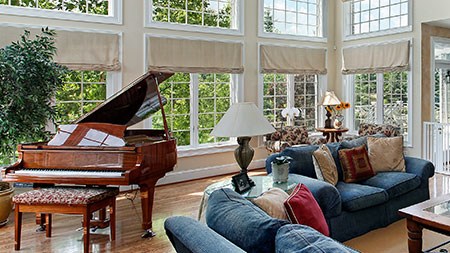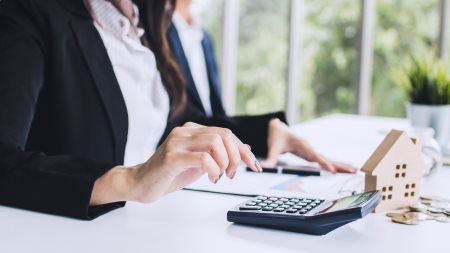While a larger home is always more appealing the additional costs that they bring need to be factored in to your buying decision.
The days when the average person could build a large home on a sprawling stand and fill the home with equally large furniture are long gone. Today, space comes at a premium as evidenced by the humbler, more densely built developments and smaller furniture which is increasingly being brought to market. That said, there are those who will always aspire to owning a large, statement home.
Read more: The future is homes that are smaller, smarter and greener
If you are considering ‘supersizing’, it’s important to do your homework first and consider carefully whether or not you will be able to afford a large home on an ongoing basis. In addition to the upfront costs such as a deposit, transfer and conveyancing fees there are several other costs which need to be carefully weighed up.
The bond:
Generally speaking, larger homes cost more which means you will probably have to apply for a large bond. While you may be able to comfortably pay this off now, it’s possible that the interest rate will go up again in the future, which could potentially jeopardise your ability to service your bond going forward.
The garden:
Chances are if you are buying a large, freehold home it will come with a fairly large garden. Gardens require ongoing attention in the form of watering, weeding, fertiliser and seasonal planting. If the garden is established and you are accustomed to gardening this shouldn’t present too much of a problem other than the fact that it will cost more money to maintain. However, if you don’t know the difference between a garden trowel and secateurs, a garden will quickly become an issue and you will have to fork out for a garden service or gardener which can be costly.
A pool:
Most large homes feature a pool. While you may love the idea of a pool, many homeowners who have had one will tell you that pools are a headache. Pools are finicky things which gobble up water and expensive pool chemicals every month. They also require ongoing maintenance in the form of brushing, sweeping, backwashing and occasionally, re-surfacing. As such, it’s really important to weigh up the associated costs and benefits of such a feature before taking the proverbial leap into the deep end.
Rates, taxes and levies:
Generally speaking, larger homes entail higher rates, taxes and levies (if applicable). This is especially true of homes located in upmarket suburbs. Before making an offer to purchase a large home, make absolutely sure you know how much you will have to shell out for these costs. It’s also a good idea to ask whether or not it’s likely the levies will be increased significantly or if a special levy will need to be raised in the near future.
Insurance:
Another financial aspect to consider which may not be immediately apparent is higher insurance premiums. It’s simple really. The replacement costs of a larger home are higher. Chances are you will acquire more furniture and items which will also cost more to insure, therefore your premiums will increase.
More ‘stuff’:
It’s human nature to acquire things. When presented with more or bigger rooms, you will undoubtedly feel compelled to decorate them and fill them with furniture and appliances which can cost a lot of money. Depending on your position, you may be able to afford to do so outright or you may need to take out a loan. Either way this is another expense which could add considerably to an already inflated list of property expenses.
Maintenance:
Every home requires ongoing maintenance of some sort. It goes without saying that the bigger the home, the more maintenance will be required. This is arguably particularly true of coastal properties, older homes and plastered homes which need to be painted on a fairly regular basis. Ongoing maintenance can be costly and needs to be factored in to your budget when considering a large home.
Security:
Unfortunately, security features are an absolute must in South African homes. Large homes require more security. If the home you have your eye on doesn’t have sufficient security or isn’t linked to an armed response company, this is another expense you will have to factor in to your overall costs. Given the fact that security upgrades can be expensive, this is not a minor consideration.
Be realistic:
In a nutshell, as is the case with any property purchase, you need to compare the increased expenses of a larger home with what you can realistically afford both now and in the foreseeable future. Doing so will illustrate whether or not you can afford to upgrade or need to live more within your means.





